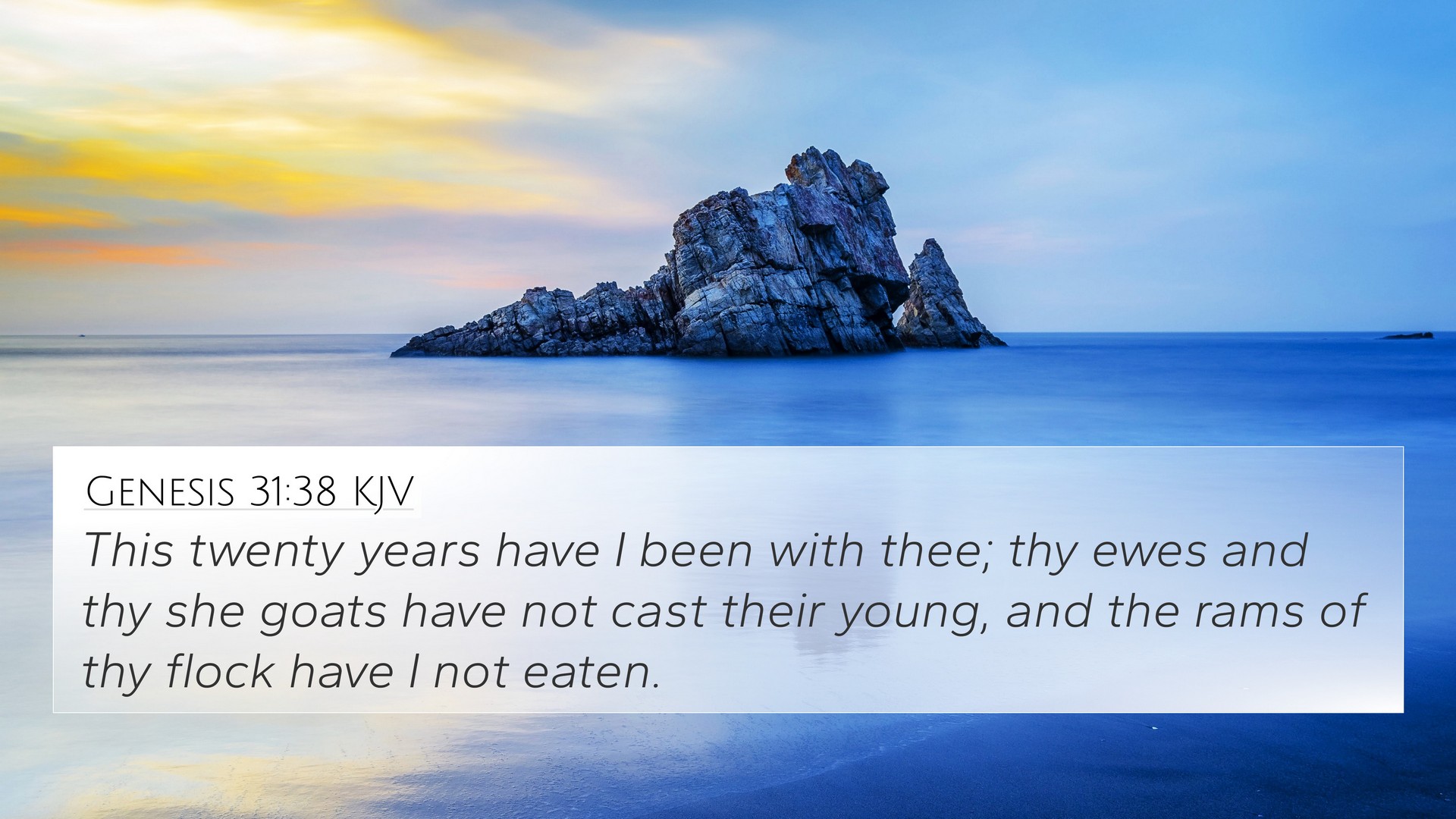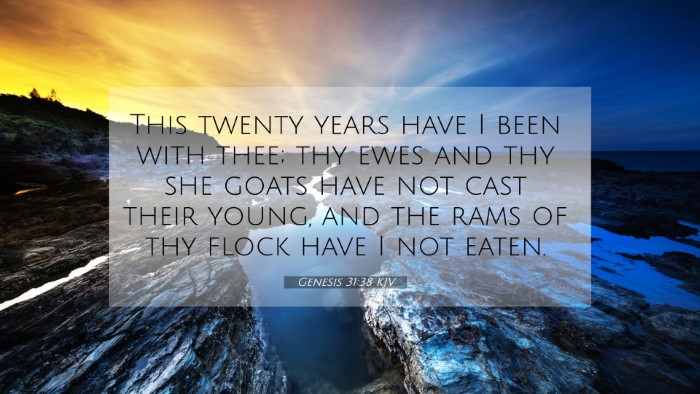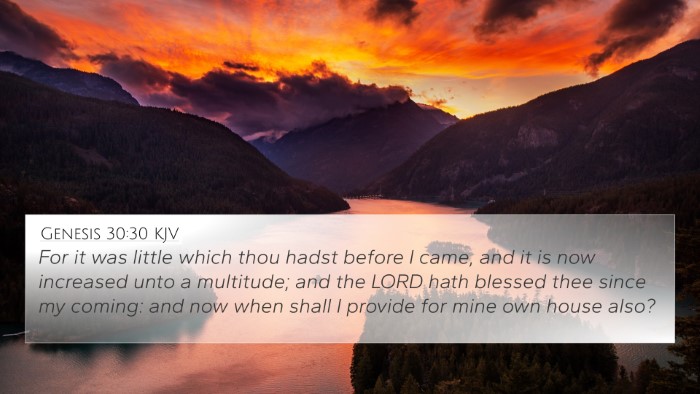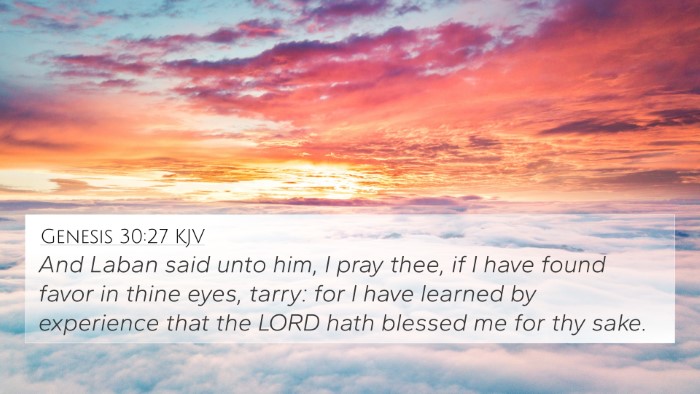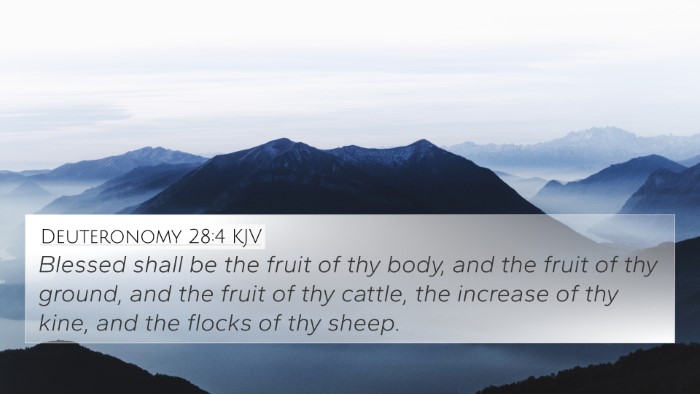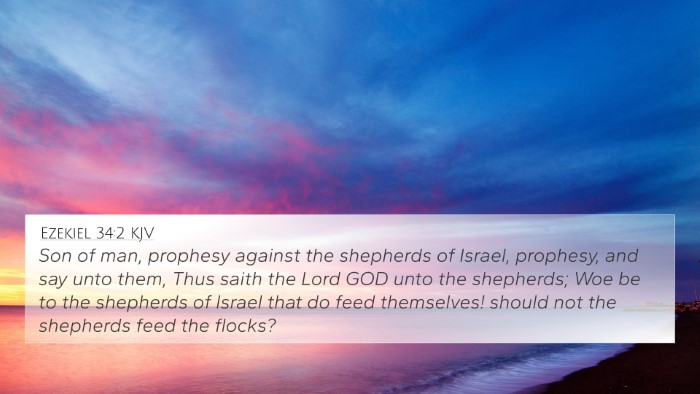Understanding Genesis 31:38
Genesis 31:38 states:
"These twenty years have I been with thee; thy ewes and thy she-goats have not cast their young, and the rams of thy flock have I not eaten."
This verse captures the important moment when Jacob confronts Laban about his years of service, detailing his loyalty and the integrity he maintained during his time as a shepherd. This analysis synthesizes insights from several public domain commentaries to provide a comprehensive understanding of the text.
Contextual Overview
Jacob's plea to Laban is grounded in a history of labor and dedication to protecting and nurturing the flock entrusted to him. The verse reflects not only Jacob's commitment but also serves as an indictment of Laban's exploitation.
Insights from Commentaries
-
Matthew Henry's Commentary:
Henry emphasizes Jacob's faithfulness during his service. He interprets Jacob's refrain from consuming the flock as evidence of his integrity and respect for the animals that he managed. This approach not only shows Jacob’s commitment but also provides a standard for ethical behavior in employment.
-
Albert Barnes' Commentary:
Barnes highlights the blessings Jacob received, noting that the health of the flock was a direct result of divine preservation. He suggests that this verse indicates God's providential care over Jacob's endeavors, a crucial aspect of understanding God’s involvement in the personal lives of his followers.
-
Adam Clarke's Commentary:
Clarke discusses the significance of the phrase "not cast their young," illustrating the unusual fertility and strength of the animals during Jacob’s tenure. He draws connections between Jacob's stewardship and broader biblical principles of care and responsibility towards creation.
Thematic Connections
This verse touches upon numerous themes that permeate the Bible:
- Faithfulness in Service: Reflects how one's work ethic is tied to one's relationship with God.
- Divine Providence: Shows how God oversees and blesses the faithful, linking to verses like Psalm 37:25.
- Integrity: Jacob's refusal to abuse his position sets a benchmark for ethical conduct in various professions, echoed in Proverbs 11:3.
Cross-References
Genesis 31:38 can be cross-referenced with the following Bible verses:
- Genesis 30:31-33: Laban's agreement with Jacob and mention of the wages.
- Genesis 29:20: Jacob's service for Rachel, highlighting his dedication.
- Genesis 31:6-7: Jacob's integrity amidst Laban’s deceit.
- Proverbs 6:6-8: Encouraging diligence and faithfulness in our dealings.
- Psalms 37:25: God's providential care for the righteous.
- 1 Peter 5:2: A call for leaders to shepherd their flocks responsibly.
- Matthew 25:21: The commendation of faithful servants in their responsibilities.
Practical Applications
This verse serves as a profound reminder of the value of integrity and dedication in all our tasks:
- Uphold Integrity: Like Jacob, act honorably in all aspects of work and life.
- Trust in Divine Provision: Recognize that God's guidance is present in our duties.
- Encourage Others: Foster a spirit of diligence and responsibility among peers.
Conclusion
Genesis 31:38 encapsulates significant themes of service, integrity, and divine oversight. Understanding these lessons through the lens of Jacob's experience can inspire one to reflect on their commitments and how they align with God's will. The connections between this verse and others enrich our understanding of the biblical narrative, showcasing the interconnected nature of scripture.
Further Study and Resources
For those interested in deeper comparative studies, consider exploring:
- Bible Concordance: A tool for identifying themes and related verses.
- Bible Cross-Reference Guide: Essential for linking Bible scriptures effectively.
- Cross-Referencing Bible Study Methods: Techniques for exploring inter-Biblical dialogue.
